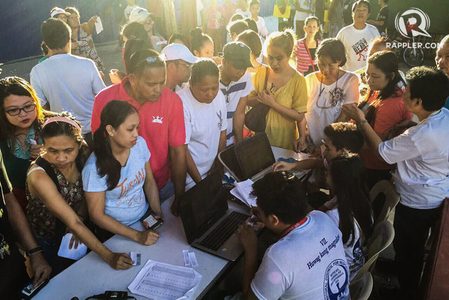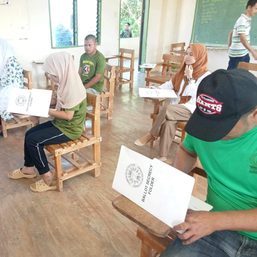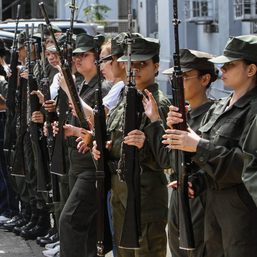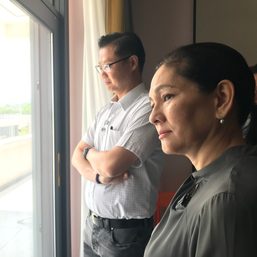SUMMARY
This is AI generated summarization, which may have errors. For context, always refer to the full article.
Commission on Elections (Comelec) chairperson Sheriff Abas said the poll body would not be able to implement hybrid elections in the 2022 national polls if the bill proposing a shift to the system is not passed by January 2021.
“Although amenable kami for the hybrid, sa mga congressional hearing namin, sinasabi namin dahil nasa middle na kami ng preparation kailangan namin sana may batas kami January. As early as January next year. Kasi kung [beyond] January, admittedly, mahihirapan na po kami” Abas said at a Senate committee hearing on the Comelec’s proposed 2021 budget on Thursday, October 22.
(Although we are amenable to the hybrid, in congressional hearings we attended, we have been saying that because we are in the middle of the preparation, we need the law by January. As early as January next year. Because if it is [beyond] January, admittedly, we will have a difficult time.)
“That is why we are proposing… (that it be considered) for 2025, but not 2022,” said Abas in a mix of English and Filipino.
Hybrid elections
A pending bill filed at the Senate in July 2019 seeks to implement hybrid elections in all future polls. The proposed measure has yet to reach the Senate plenary.
By “hybrid elections,” Philippine officials mean a manual process of voting and counting of ballots at the precinct level, and an automated process of transmitting and canvassing results.
The proposed measure is a response to the issues and controversies encountered in previous elections, which were on a fully automated system. The Philippines shifted from a fully manual to a fully automated polling system in 2010.
In the bill’s explanatory note, Senate President Vicente Sotto III cited a National Citizens’ Movement for Free Elections report, which stated that the integrity of the automated election system was undermined by an intrusion of an unauthorized transparency queue server while the system was actively receiving data during the 2016 national elections.
“This mode will strengthen the integrity of the elections and forego with the issues like early and inaccurate transmission of votes,” said Sotto.
In the case of any discrepancy between manual and digital election returns, the manual returns would be used, Sotto said.
In the current fully automated system, the vote counting machine prints a receipt as a way for voters to verify how the machines read their ballots.
Voting by mail?
In the same Senate hearing, Senator Francis Tolentino urged the Philippine Postal Corporation (PhilPost) to study “mail-in ballots” for local absentee voting.
Senator Risa Hontiveros asked if PhilPost was considering using registered mail to allow people to cast their votes remotely, to avoid gatherings at poll precincts – in case the pandemic continues until 2022.
Assistant Postmaster General for Operations Joel Zamudio said the agency has done this in the past for overseas absentee voting, but not for local absentee voting.
If given the mandate, PhilPost would create a system for mail-in voting, Zamudio added.
A Senate bill filed on October 5 seeks a system which would allow senior citizens, pregnant women, persons with disabilities, and indigenous people to receive and send their ballots through mail.
In the proposed measure’s explanatory note, Senator Imee Marcos wrote that there was a need to institute measures that would protect the vulnerable sectors of society from COVID-19, while ensuring that they can exercise their right to vote.
Some persons with disabilities (PWD), and indigenous people in remote areas have already had difficulty voting in past elections due to the inaccessibility of some polling places, Marcos added.
“Perhaps we can also recognize other simpler venues that are more accessible to PWDs, seniors and other citizens” said Marcos during Thursday’s hearing. – Rappler.com
Editor’s note: Jacob Reyes is a volunteer at Rappler. He is studying AB Communication at the Ateneo de Manila University.
Add a comment
How does this make you feel?











There are no comments yet. Add your comment to start the conversation.